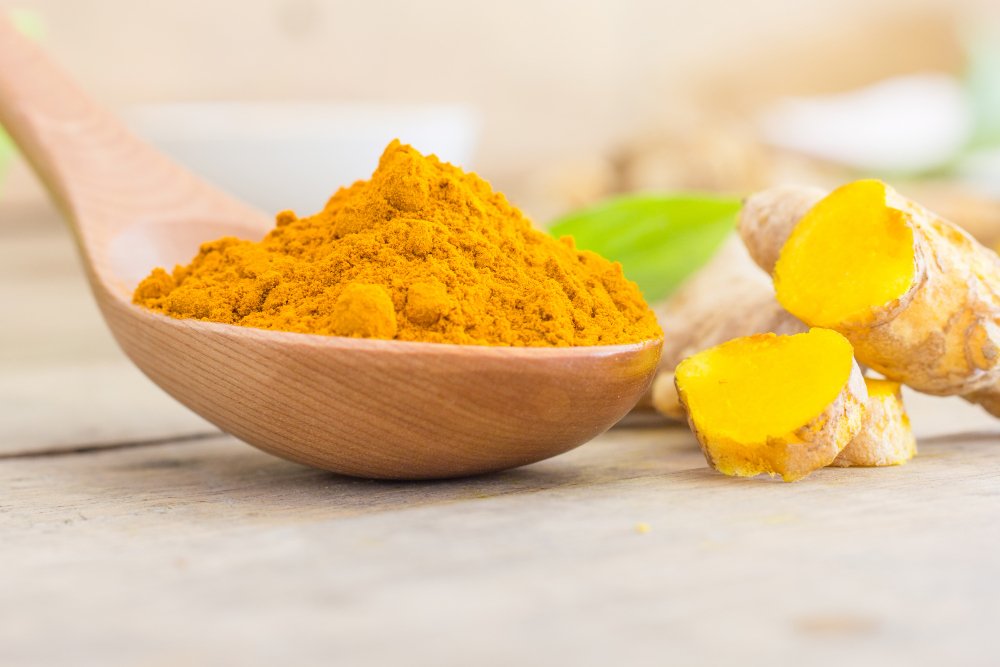Acupuncture comes from ancient China and uses thin needles to help with health issues. It’s known for easing pain but also helps with stress and improving overall health. By placing needles in specific body points, it can help your body heal itself.
This article explores the benefits of acupuncture and how it can improve your self-care routine.
Understanding Acupuncture
Acupuncture comes from China and uses thin needles to help with health issues. It’s known for easing pain and helping with stress and wellness. By placing needles in certain spots, it can help your body heal itself.
This article talks about how acupuncture can improve your self-care routine.
Understanding Acupuncture
Acupuncture is based on the idea that energy, or chi, moves through the body. It uses thin needles at specific points to help this energy flow. This can help with pain, arthritis, and migraines.
Research shows it can increase CGRP, a neuropeptide that helps blood flow and eases pain.
It has a long history and is now accepted as a treatment. Acupuncturists learn a lot about how body pressure and health are connected. This makes acupuncture different from other treatments.
Benefits of Acupuncture for Pain Relief
Chronic Pain Management
Acupuncture is good for managing chronic pain. It uses needles at specific points to help energy flow. Studies show it can help with low back pain and arthritis.
Treatment sessions last 20 to 60 minutes. They can help your body heal by improving blood flow.
It works well with Western medicine. Getting a referral from a doctor can help find a good practitioner. Side effects are usually small, and it can be used with other treatments.
Acute Injury Recovery
Acupuncture can help with acute injuries. It uses needles to stimulate energy flow. This can improve health and reduce pain and inflammation.
It releases neuropeptides like CGRP to help with healing. An acupuncturist might use trigger point therapy to target tight areas. This can help with pain and relaxation.
It’s a safe option for managing symptoms. Acupuncturists at places like the CU Anschutz Health and Wellness Center can help with recovery plans.
Benefits of Acupuncture for Mental Health
Stress Reduction
Acupuncture can reduce stress by calming the nervous system. It uses needles to promote relaxation and ease anxiety. It comes from traditional Chinese medicine, where energy flows through the body.
Research shows it can improve blood flow and create feelings of well-being. It can help with stress by releasing neuropeptides like CGRP. Regular sessions can help manage stress long-term.
Side effects are usually minimal, allowing for improved health and reduced stress symptoms.
Anxiety and Depression Treatment
Acupuncture is a traditional Chinese medicine practice that helps with anxiety and depression. It improves energy flow in the body’s meridians. Thin needles inserted into specific points can cause sensations that increase blood flow and ease discomfort.
It’s effective for low back pain or arthritis when used with other treatments. Practitioners target trigger points and use heat on needles for comfort. Getting a doctor’s referral to a qualified practitioner is key for proper treatment.
Acupuncture sessions last 20 to 60 minutes and have few side effects when done right.
Benefits of Acupuncture for Physical Wellness
Boosting Immune Function
Acupuncture might boost the immune system. It focuses on specific points to improve energy flow. This can lead to better immune responses by increasing blood flow and vasodilation.
It can help with low back pain and arthritis by engaging immune activity areas. Practitioners suggest treatments based on individual symptoms and diagnoses. This practice can manage discomfort and promote health, with minor side effects.
Getting a referral from a doctor or wellness center can help find qualified acupuncturists. This improves health information and overall well-being.
Enhancing Digestive Health
Acupuncture aims to improve health and manage conditions. It involves inserting thin needles into specific points on the body. These points are along pathways that carry energy, or chi.
Stimulating these points can enhance blood flow and energy circulation. Acupuncturists use techniques from traditional Chinese medicine and modern practices. Sessions last 20 to 60 minutes, and side effects are rare when done by a trained practitioner.
Exploring Ear Acupuncture
Procedure and Techniques
Ear acupuncture uses thin needles in specific ear points. Practitioners use traditional Chinese medicine to find these points. They consider symptoms and health history to determine the best points for treatment.
During the procedure, patients lie comfortably. The acupuncturist may apply heat or electrical pulses to enhance sensations. This technique promotes vasodilation, improving blood flow and relieving discomfort. Safety measures, like using sterile needles, are taken to prevent side effects.
Health Benefits of Ear Acupuncture
Ear acupuncture targets specific points on the ear linked to organs and systems in the body. It helps manage low back pain, arthritis, and mental health issues like anxiety and stress. By inserting thin needles, it promotes energy flow and blood circulation, easing discomfort.
Research shows it can lead to segmental analgesia, providing pain relief. It’s beneficial for those with chronic pain or menstrual symptoms.
While side effects are rare, practitioners should watch for infection or discomfort. A doctor’s referral may be needed for certain conditions.
Acupuncture in Modern Medical Campuses
Integration with Conventional Medicine
Acupuncture complements conventional treatments, improving patient care. Acupuncturists work with doctors to address conditions like low back pain and arthritis. Studies show it stimulates specific points, affecting energy flow and pain perception.
It activates segmental analgesia, boosting the body’s pain relief chemicals. Patients find it helps without significant side effects, improving their symptoms and overall health.
Clinical Studies Supporting Effectiveness
Clinical studies confirm acupuncture’s effectiveness for chronic pain. The Mayo Clinic research shows it stimulates energy flow and segmental analgesia, reducing discomfort. Thin needles inserted into acupoints lead to less pain and pressure, often with minimal side effects.
It also benefits mental health by calming the nervous system and promoting wellness.
5 Tips for Choosing an Acupuncturist
Check Credentials
Acupuncturists are trained in traditional Chinese and Western medicine. They know about acupuncture points and the body’s response to treatment. Patients should ask for specific credentials and seek doctor referrals.
Membership in organizations like the National Certification Commission for Acupuncture and Oriental Medicine confirms qualifications. Discussing experience with conditions like low back pain and arthritis is also important.
It’s important to know about possible side effects and the practitioner’s techniques. They should be open about their methods, including the use of specific points and heat.
Ask About Treatment Philosophy
An acupuncturist assesses symptoms and behaviors, using traditional Chinese and modern practices. They examine specific points on the body to address issues like low back pain and stress.
They believe that balancing energy flow through meridians can alleviate discomfort. This treatment can lead to reduced pain sensations, allowing the body to heal itself. The acupuncturist customizes treatment plans based on individual health goals and feedback.
Each session lasts 20 to 60 minutes, with sensations ranging from mild ache to warmth. Practitioners emphasize regular referrals to doctors for a holistic approach to health and managing side effects.
Read Patient Reviews
Patient reviews show acupuncture helps with low back pain and arthritis. It uses specific points to improve energy flow. People often feel mild aches or pressure from the needles.
Many say they feel better after treatment. This shows how skilled acupuncturists can be. They know both traditional Chinese medicine and Western practices.
The experience at health centers is usually good. Places like the CU Anschutz Health and Wellness Center are calm. But, some might feel a bit uncomfortable or sore.
There are also worries about infections. It’s important to have a clean and skilled practitioner.
Evaluate Office Environment
The office is clean and organized. This makes patients feel safe. The decor is calming, with soft lighting.
This helps patients relax. Studies show relaxation makes acupuncture more effective. The place is also easy to get around, with ramps and big rooms.
Acupuncturists focus on certain points to help with pain. They make sure they are doing it right. This is important at places like CU Anschutz Health.
Acupuncture helps with health by improving energy flow. It can make people feel better. The office environment plays a big role in this.
Discuss Your Health Goals
Acupuncture helps with pain and improving energy flow. People go to get relief from pain and to feel better. It works by stimulating specific points on the skin.
These points help with relaxation. Treatments last 20 to 60 minutes. Thin needles are used at specific points.
Techniques like segmental analgesia help symptoms. Acupuncturists tailor treatments to each patient. This approach helps with wellness and health. Side effects are rare, making it a safe choice.
Future of Acupuncture in Healthcare
Expanding Research and Acceptance
Studies at places like the CU Anschutz Health and Wellness Center are looking into acupuncture. They want to know how it helps with pain and arthritis. They’re studying how it works, like segmental analgesia and CGRP release.
This research can help people understand acupuncture better. It shows how it can help with pain without big side effects. This can change how people see acupuncture.
Potential Developments in Treatment Protocols
New technologies and methods could change how acupuncture is done. For example, studying energy flow and vasodilation could improve techniques. Working together with Western medicine can also help.
Doctors might send patients to acupuncture for pain relief. This sharing of information can improve care. Ongoing research will make acupuncture even better.
FAQ
What are the primary benefits of acupuncture for overall health?
Acupuncture boosts health by lowering stress and improving sleep. It also helps with pain and strengthens the immune system. For best results, go for regular sessions to tackle specific issues.
Can acupuncture help with chronic pain management?
Yes, acupuncture can manage chronic pain by reducing inflammation and improving blood flow. It can help with arthritis, back pain, and migraines. Regular visits to a licensed acupuncturist can track and enhance your treatment.
How does acupuncture support mental health and emotional well-being?
Acupuncture helps mental health by lowering stress, anxiety, and depression. It releases endorphins and balances energy. Regular sessions can lift your mood and help you relax.
Is acupuncture effective for improving sleep quality?
Yes, acupuncture can improve sleep by promoting relaxation and reducing insomnia. A licensed acupuncturist can create a personalized treatment plan. Some see improvements after a few sessions, so aim for weekly visits.
What role does acupuncture play in enhanced immune system?
Acupuncture boosts the immune system by improving circulation and reducing stress. Regular sessions can balance immune responses, making you more resistant to infections. Adding acupuncture to your wellness routine can support your health.







